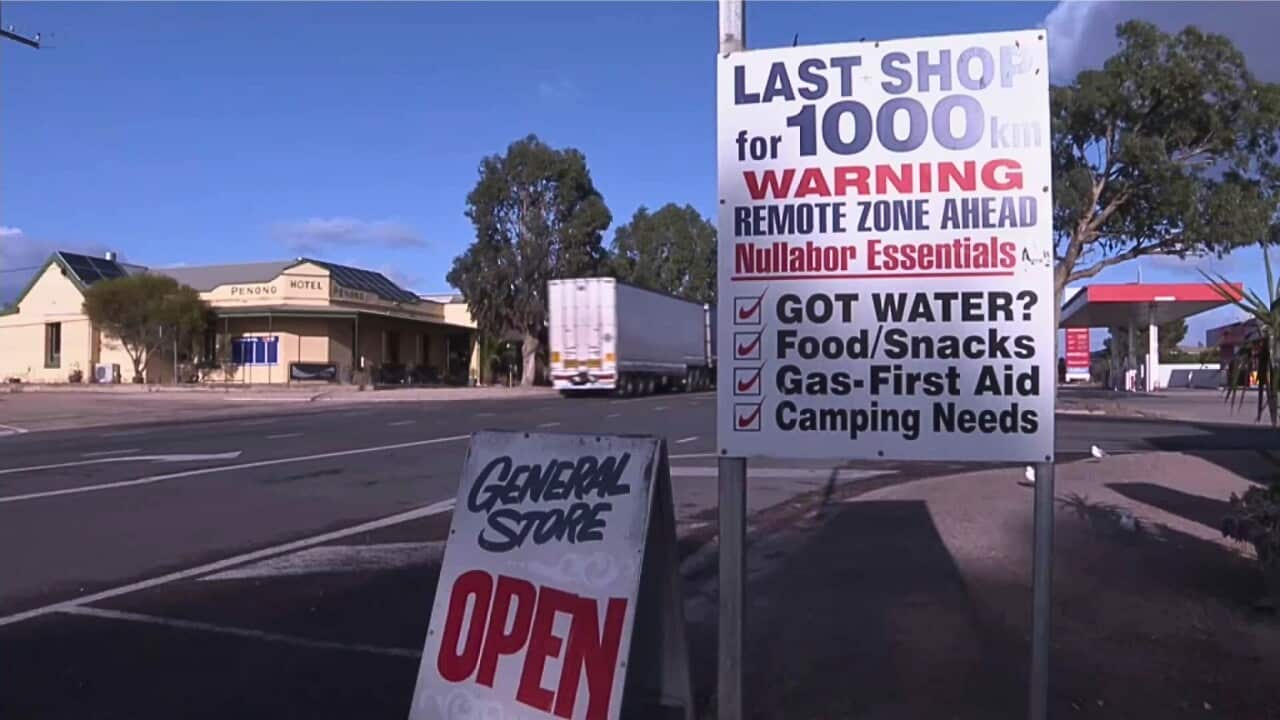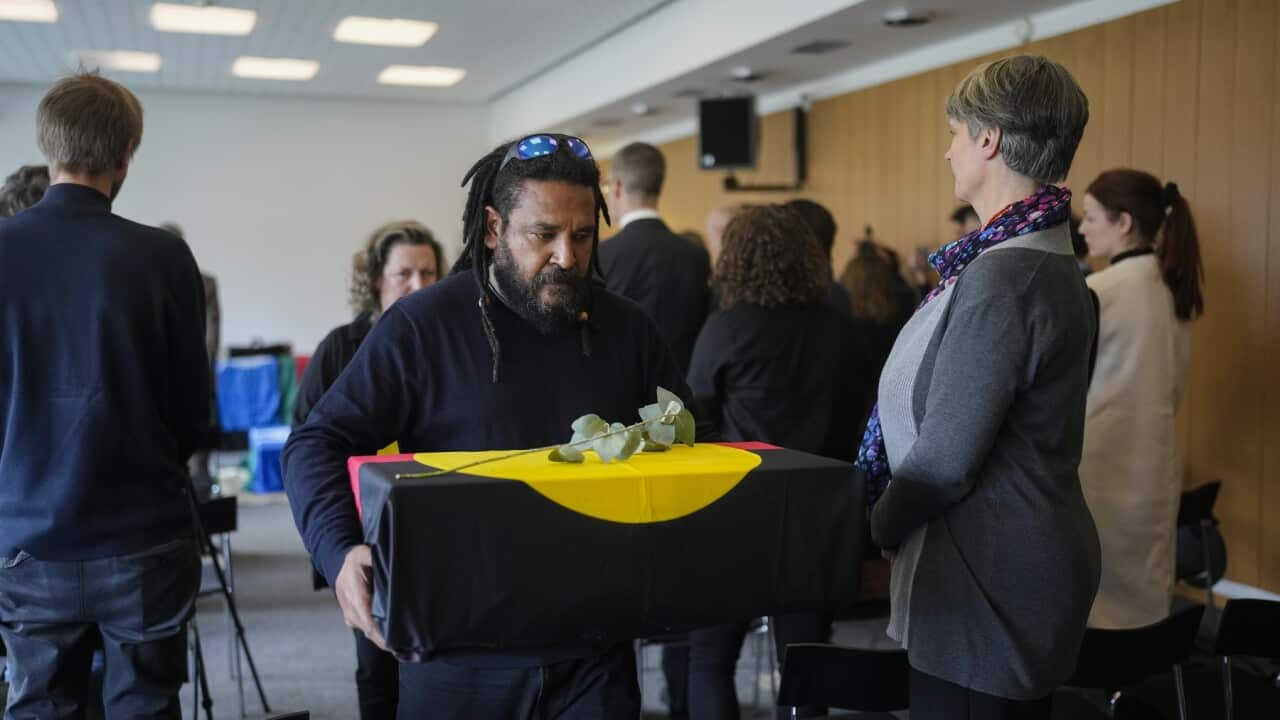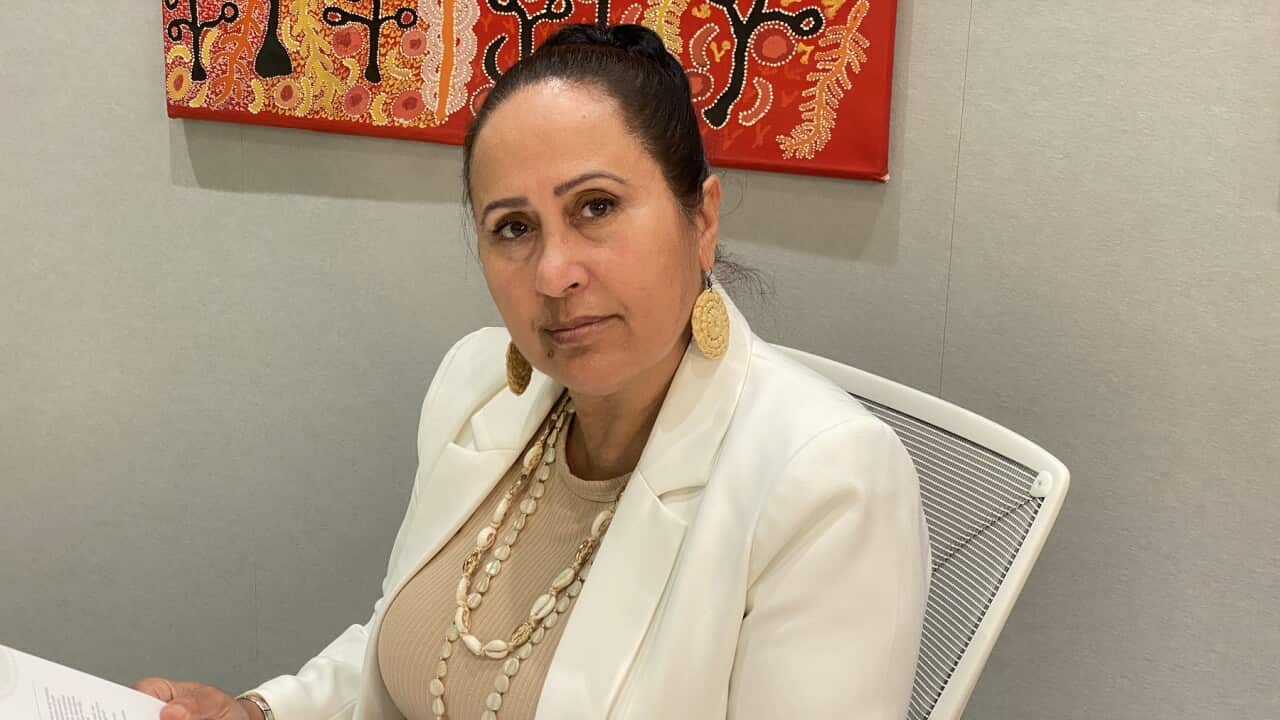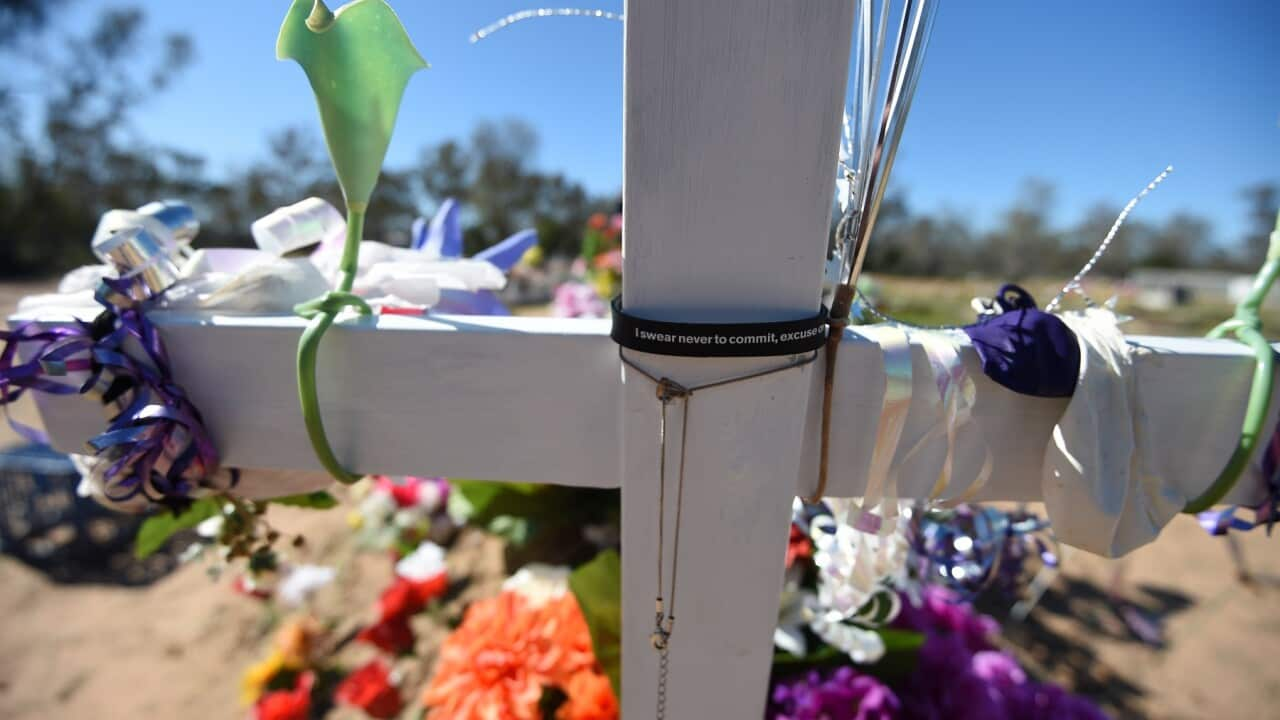TRANSCRIPT
On South Australia’s far west coast, Penong is the last pit stop on the south side of the Nullarbor. Around 300 people live in the farming and mining town and nearby Aboriginal communities.
It’s home to Australia’s largest windmill…. and in the 1967 referendum to count Aboriginal and Torres Strait islanders in the census, made the national headlines as the town with the highest 'no' vote in the country.
Wanda Miller remembers what it was like before the referendum.
“People in small towns didn't acknowledge Aboriginal people. We were left on the outskirts of town, we weren't allowed into the shops and, and things like that, so completely ignored unless they wanted some men to clear their stumps.”
More than half a century later she's volunteering for the Yes Campaign on the former mission where she lived in a children’s home from the age of four.
“It has improved quite a bit but we are still not on an equal footing with the rest of Australia ."
At the Electoral Commission's early polling station in Penong, residents told SBS the town had always had a harmonious relationship with the Indigenous community.
Man 1: “In them days they all assimilated and were great, you know we played footy together, worked together played together."
Man 2: "Without them we’re not really a community are we, we live together, work together."
Fifty -six years on from the 1967 Referendum it looks like history is repeating itself... the majority of voters who spoke to SBS indicating they're saying no to a voice to parliament.
For them it's not about race, but a general distrust in government, confusion about what the voice will look like and a sense it's not really needed here.
Nearby Ceduna - where a quarter of the population is Indigenous - there’s a long history of racial division.
Sue Haseldine recalls the day she was refused access to the hospital.
“I was being very sick near the rainwater tank and the sister had to come outside to check me out, but we were not allowed in the hospital.”
Ceduna was a trial site for the controversial cashless debit card and critics of the voice point to a high tax-payer spend on social services.
Supporters say input from community would re-direct funding to programs that work.
Leroy Bilney is the CEO of Yadu Health Aboriginal Corporation, a non-profit community controlled Aboriginal health service that was first established in 1978.
"What I'm hopeful for is that with this Yes campaign, it means all of our solutions that we still have to this day that will solve a lot of our issues. And, um, and the community's issues as a, as a whole can be resolved."
At a meeting hosted by signatories to the Uluru statement. the community expressed frustration the official Yes campaign failed to visit the region – leaving a vacuum for no messaging to take hold.
Wanda Miller again:
“And it’s really disappointing because we really need support.”
But there are signs of change .
The next generation is hopeful, saying they believe they are at a turning point, informed by the struggle of previous generations.
“I’d would just say we're more used to the history of what happened back then. The older generation, two generations above they had only just got into the census. And their children would have just pretty much gotten used to being included and this generation. We've just gotten used to it."













